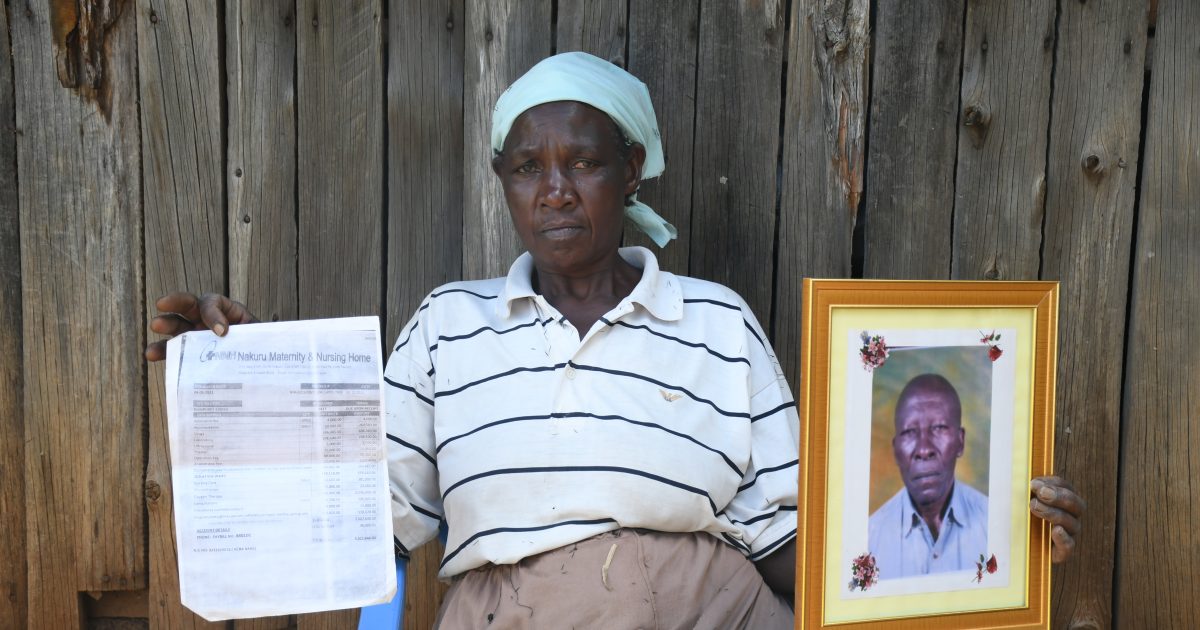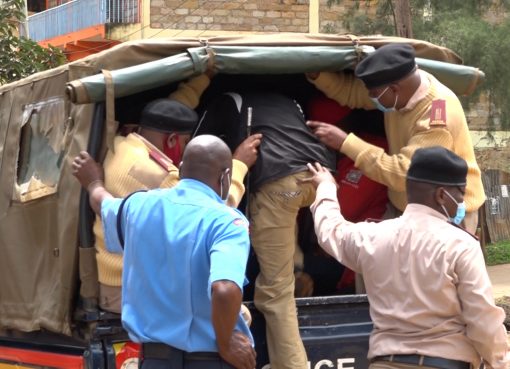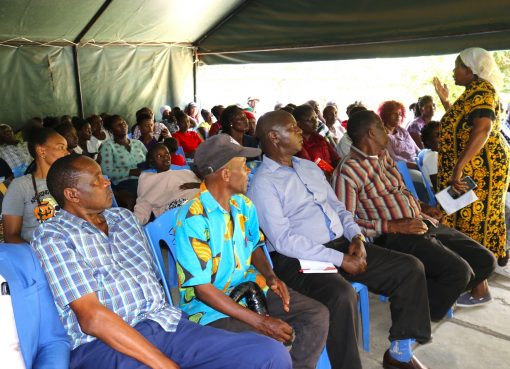When their loved ones die, most families’ desire is to give their departed loved ones a decent send off and move on with life.
But a family in Olrongai Village on the outskirts of Nakuru town is living in pain and daily agony as they cannot bury their father more than a year after he passed on due to an unpaid hospital and mortuary bill.
Kigera Mwai’s body has been lying at Umash Funeral Home in Nakuru since October 6, 2021 after the family failed to pay a medical bill amounting to Sh5.5 million to Nakuru Nursing Home.
“My husband was admitted to the hospital in September 2021 suffering from Covid-19 complications,” his wife Eunice Nyambura Kigera, told Kenya News Agency.
An officer in charge of records at the mortuary and who did not wish to go on record said the facility is willing to negotiate terms of payment with the family for as long as they clear with the hospital.
“We are protecting the hospital bill by holding on to the body. We must get approval from Nakuru Nursing Home to release it to the family,” she said.
According to the facility’s accounts department, the mortuary fee now stands at Sh500,000, while hospital records indicate that the family is yet to settle Sh5.1 million.
The widow, a mother of three- two young women and one young man – who are all unemployed, is now appealing to well-wishers to help them raise the money to clear the bill.
“All we want is to accord our patriarch a decent send-off. We have reached out to all top political leaders and well-wishers in Nakuru town to help us but we have received no help,” said Nyambura.
She said the family has only managed to raise Sh30,000 through social media platforms. “We hoped that they would accept the amount and allow us to fetch the body for burial, with the balance to be cleared at a later date. The hospital, however, said it was too little,” Nyambura said.
Nyambura is now worried that they may not be able to bury their kinsman at Olrongai Village within Rongai Sub-County as the mortuary charges are accumulating at the rate of Sh1,000 per day and an additional Sh2,000 for preserving the body.
“We have exhausted the little savings my husband had. Our lives have ground to a halt. We can’t move on as long as our patriarch is lying in the mortuary. We don’t have anything,” lamented the widow.
Nyambura said the family is now worried that as the body continues to be detained at the mortuary, they might not be able to bury their relative in a good condition as it is slowly deteriorating.
“The last time I visited the mortuary and viewed the body I noticed worrisome changes. As a family we are worried we will only be able to bury it in a worse condition if the body continues to be detained further at the morgue. Can that be anyone’s wish?” Nyambura posed, dabbing her eyes with a crumpled handkerchief, the only constant in her life now.
She adds “Sisi hatuna kitu kabisa. Mimi sina anything (I don’t have anything). We survive on subsistence farming. What will you do with a dead old man anyway? Mzee is dead, it is not like he is alive and one day he can work and pay up.”
Her family’s predicament only points to the jeopardy that poor families find themselves in when hospitals hold on to bodies of relatives, due to unpaid hospital bills.
“The family is undergoing untold sufferings and I appeal to Kenyans of goodwill to help the bereaved,” said Mr. James Kariuki who is their neighbour.
Kariuki a retired civil servant said the funeral organising committee composed of the deceased’s neighbours was also exploring ways of holding a meeting with the hospital management to discuss the way forward.
He added, “We just hope we will reach a common ground. At the Covid-19 pandemic’s peak many poor Kenyans found themselves in private health care facilities because public hospitals were overstretched.”
A hospital official confirmed that the body is still detained at Umash Funeral Home and will only be released upon payment of the pending bill.
“The hospital is willing and ready to release the body once we receive full payment,” said a hospital official who could not be quoted as she is not the hospital’s spokesperson.
By Anne Mwale and Dennis Rasto





